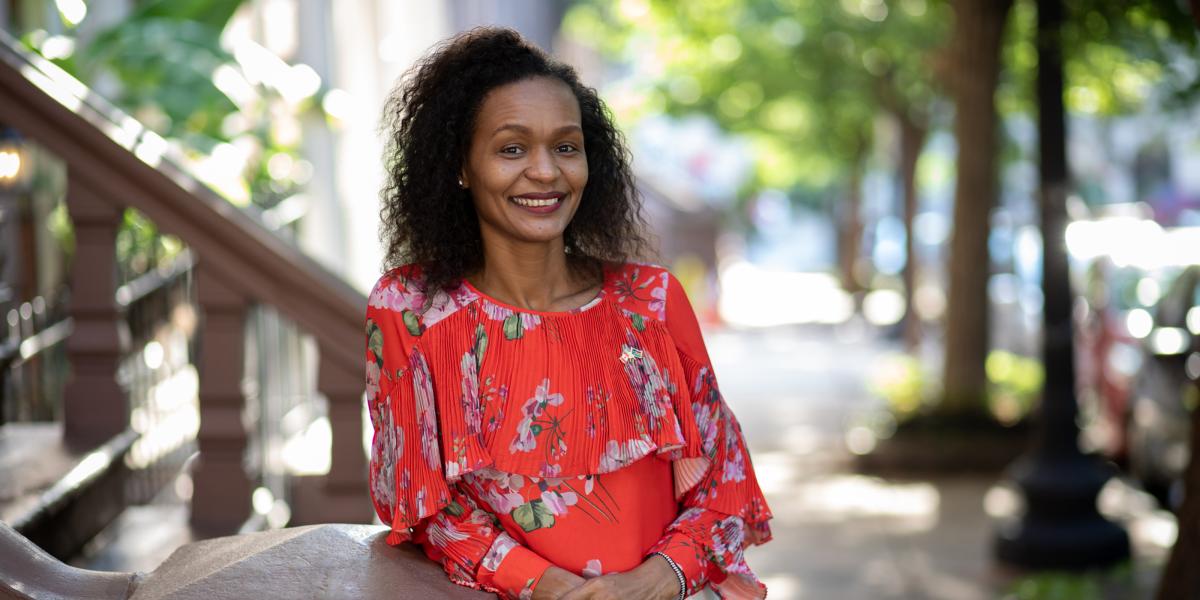What We Do for Health
My path to public health included a beauty pageant in the world’s newest country.
Shortly after arriving in South Sudan in 2011, I participated in my first and only beauty pageant. I wasn’t seeking celebrity. Instead, I had a secret motive.
I had moved to South Sudan—the world’s newest country—from Sudan where I was born and where my maternal family had sought refuge from the war in the South. Growing up, I enjoyed the privilege of attending a British school. My mother, a seamstress whose educational journey had been brief, was adamant that I be well educated. Today, I am grateful for her sacrifices, which helped me make it to medical school. The same month that South Sudan gained independence, I completed my last clinical internship rotation.
Blown away by the euphoria of independence, I packed my bags, my dreams, and thoughts of wonderful contributions I planned for my new country, and I headed South. I fell in love with the greenery, the people, and the vibrant mantra “let us build our country.” But I was appalled by the devastation that seeped so deep. While working at the main hospital, many a time I would feel helpless due to limited resources. I realized, though, solutions lay in public health.
My future in medicine was bright—I was practicing surgery and teaching—but I wanted to make a bigger difference. In that part of the world, however, public health practice was looked down upon as an inferior branch of medicine. I was told I would lose my teaching position if I switched to public health from surgery. The heavy cloud of doubt and fear was never far behind me. This didn’t unnerve me much, though. After all, I’d rather be helping vulnerable people than worrying about a title on my business card.
So when I received a call to participate in the country’s first national beauty pageant, I accepted. If I won, I could use the title as a platform to raise health awareness. It was a very challenging couple of weeks, as I juggled my time between high heels and dissection blades from the anatomy sessions with my second-year medical students. Nevertheless, I didn’t falter. I won the title of Miss South Sudan 2012–2013. Pomp, glamour, and puerile razzmatazz followed, but I couldn’t care less. I only felt a drive to reach the people. I launched my health awareness campaign and hosted a call-in radio show. The questions and misperceptions on health were many, from those who felt betrayed by health services that never reached them to young men convinced that HIV transmission was linked to body size alone.
It made me realize again my country’s need for public health solutions, so I resigned my position at the university and the hospital.
Today, I am better equipped to bring about positive public health outcomes. I am not the first South Sudanese student at the Bloomberg School. That makes me proud because I know I won’t be the last, either.
Ebola preparedness and the response to COVID-19 have proven that South Sudan’s Ministry of Health can stretch its arms far and wide, providing services for its people. In the past five years, I worked with colleagues possessing great knowledge and who exercised exceptional leadership. Public health professionals surfaced, many of whom will one day steer our country toward progressive change. I wish to contribute to that metamorphosis into excellence, so I came to Baltimore to learn more about public health.
Today, I am better equipped to bring about positive public health outcomes. I am not the first South Sudanese student at the Bloomberg School. That makes me proud because I know I won’t be the last, either.
In South Sudan, hopes are high for public health. With growing interest and professionalism, ambitious and excellent health practitioners realize that through public health we can rebuild our health system. Though weakened by war, a plummeting economy, and brittle leadership, the system can regain power through knowledge. I see this as the rising of the Phoenix, signifying hope and, of course, the rebirth of my country.
Though I’m very passionate for my country, my aim is to serve humanity. I hope to be an inspiration and role model for all those who have dreams but think them impossible, particularly for women of color and those raised by single parents.
I represent resilience, determination, excellence, and hope. And in the words of Maya Angelou, I come as one, but I “stand as ten thousand.”
